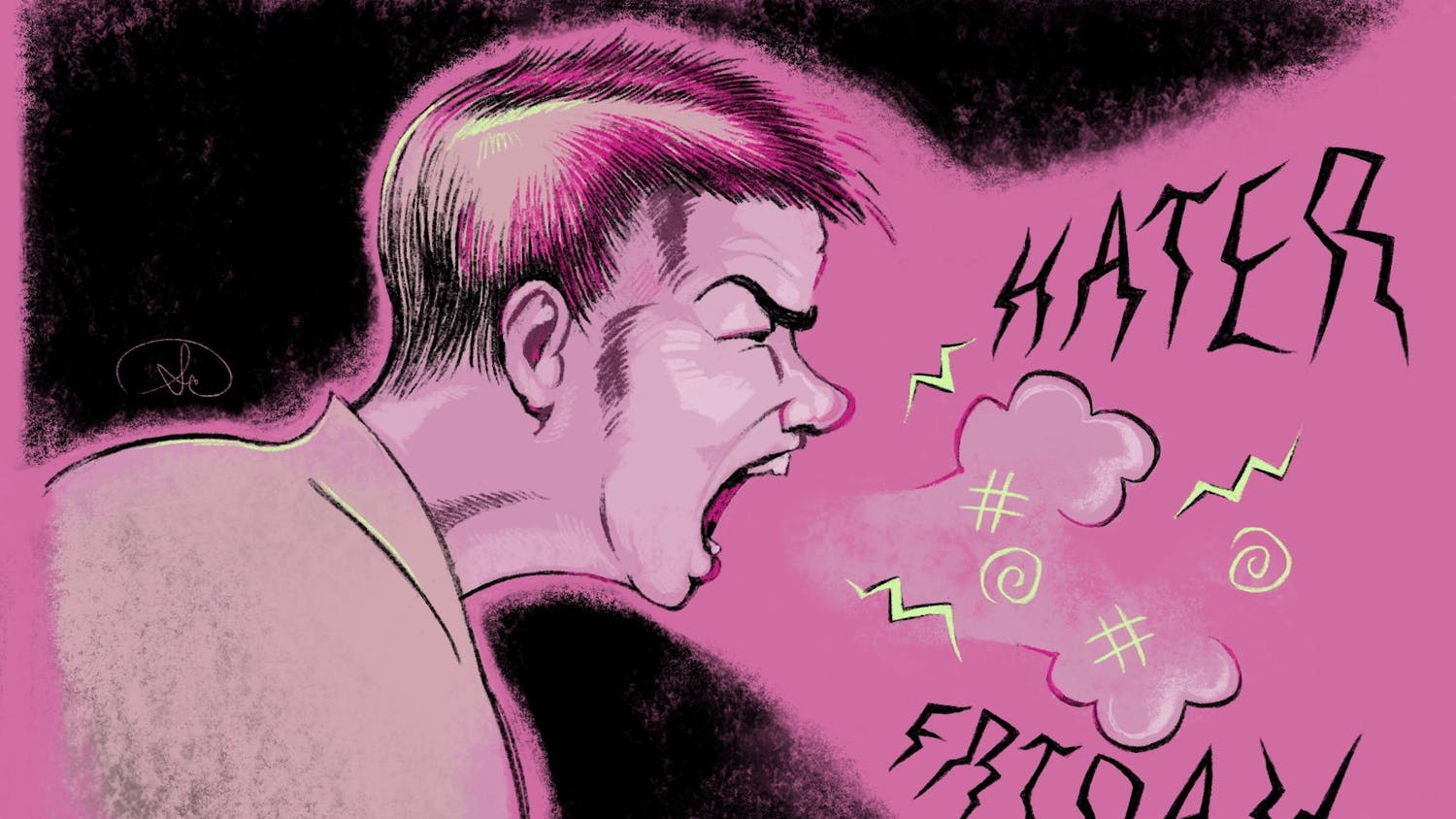Editor's Note: A previous version of this article attributed the orchestra’s stage placement to Liv Licursi ‘25. The article has been edited to reflect the holistic contribution of the production’s creative team.
Note: There will be spoilers for the plot of Spring Awakening in this article.
The Melodramatics Theater Company’s production of Spring Awakening was put on in Risley Theater this past weekend (April 17-19). I have some apprehension towards Risley Theater. It is perpetually sweltering or freezing and so dirty that I once saw someone drop their hat and when they picked it up, it had immediately been covered in dust. I was slightly disappointed when I found out that Melodramatics would be unable to perform in a bigger, cleaner theater, but when I arrived at Spring Awakening, I was reminded of some Risley history.
Risley is one of Cornell’s oldest dorms. It was the women’s dormitory back when women made up a small minority in Cornell science classes and were restricted by curfews and dress codes. Even after Risley was converted to an arts dorm, the students had no performing space. Legend has it that these passionate creatives stormed the Risley Library and tore down books and shelves, clearing the space for a stage. As the creative team of the show emphasized, Spring Awakening has a long history of censorship, often protested for its mature content. Just as Spring Awakening overcame its artistic suppression, Risley residents of days past overcame their own to create the space where the Melodramatics staged the show.
Spring Awakening is not subtle in its messaging, but this production was even more direct. The walls of the theater were covered in newspaper collages, and the center wall lists “Twelve signs of fascism” including “Rampant sexism” and “Disdain for intellectuals and the arts.” Their production begins with two individuals on a center platform, one holding a clock and another holding a sign that says “America 2025.” A voiceover rings with some of the most fascist things the American government has said in recent years. The clock moves backwards, faster and faster until the sign reads “Germany 1891.” The lens is clear. From the beginning, the audience must consider how what these German school adolescents go through connects to our current lives. I initially met this message with trepidation. After 2016, there was a great influx of anti-Trump art. After he was elected for the second time, I wondered how much of that was opportunistic and how much of it was truly meaningful. In the current American political climate, there’s a natural urge to deflect and say, is it really that bad here? Are we really that restricted?
Spring Awakening follows a group of teenagers as they navigate their sexual awakening in a repressive German society where sex should not be spoken of and academic mistakes are brutally punished. The worth of this doctrine is examined when a failing grade drives a student to suicide and a back alley abortion kills a girl unaware of its dangers.
I think I watch enough small budget theater to say that there is a lot to dislike about small budget theater. Resources are often strained, casting options are often limited and most importantly, they are often plagued by easily impressionable directors with only preliminary visions. It is extremely grating to watch a performance with a glaring miscast or another with a lot of potential but little follow through. Even productions that don’t have these larger issues often end up being just fine. I say all of this because I hope that readers understand how absolutely miraculous the quality of this show was, and it was excellent. This production had none of those issues, least of all an undisciplined director. When it comes to well-known, arguably classic works, you often run into creative teams that either do not understand the material or think that it is beneath them. This is obviously reflected in performances with missed jokes or overly inventive stagings that distract from the source material. This production, led by director Liv Licursi '25, seriously engaged with the book while still offering a fresh interpretation. The actors’ choices were clear, but never overly planned. The choreography was obvious in its intention, but never overdone.
I explained my own qualms with Risley, but for this production’s purposes, the small stage was another obstacle. This small stage is flat, so where can you hide away an entire pit orchestra, including a full drum set? The creative team just put them right on stage. The entire cast is also on stage for the entire duration of the show, in a circle of chairs surrounding the actual scene space. I was worried that the onstage pit would be distracting, and I do wonder if the chair circle was formed somewhat in part to separate the pit from the performance. This idea of having all of the performers on stage even if not actively performing is sometimes required by a script and also currently a bit of a trend I have noticed. I’ve seen a few performances like this, and while it doesn’t bother me, I often wonder why. In the case of this performance, I was delighted that it added something. The staging was a big risk that really landed. The ensemble’s presence forces you to consider that this suppression is not just the story of a few characters, but the story of them all. It forces you to think of the stakes for these actors, who for a full two hours, present their own faces to criticize fascism.
By the end of the show, I had no more questions about if a Trumpian comparison was fair. My only question was, in America 2025, how do we stop what happened to the Spring Awakening children from happening to our kids?
Chloe Asack is a junior in the College of Arts and Sciences. She can be reached at casack@cornellsun.com.











